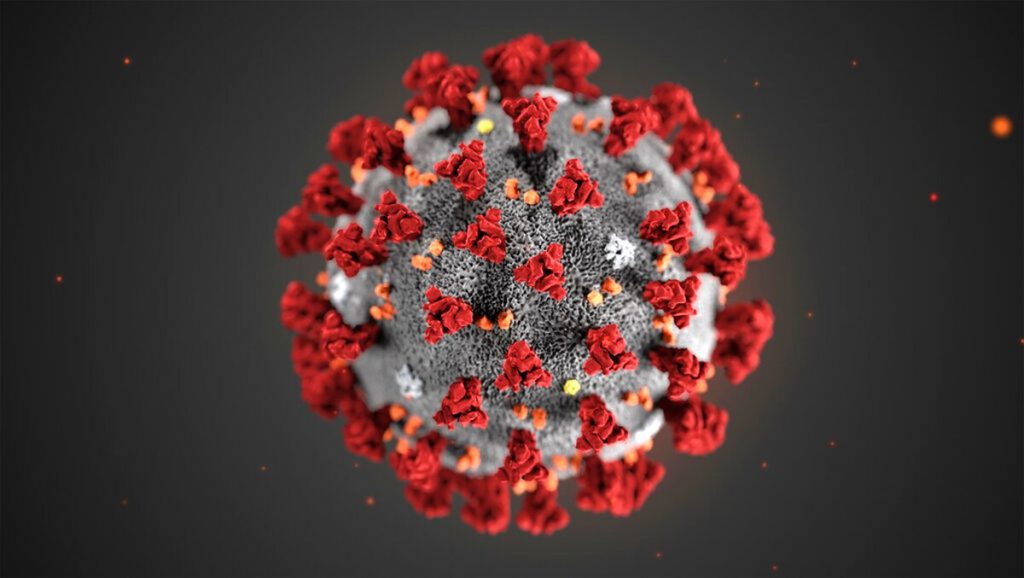UW Rapid COVID-19 Test Missed Many Asymptomatic Cases
A CDC study finds a test used by UW-System schools missed 59% of asymptomatic cases.
Rapid COVID-19 tests used at nearly all University of Wisconsin System campuses missed 20 percent of positive cases among those showing symptoms, according to a new study by the Centers for Disease Control and Prevention. For asymptomatic individuals, the tests missed nearly 59 percent of positives.
In August, a month before the start of the 2020 fall semester, UW System Interim President Tommy Thompson announced the purchase of 350,000 COVID-19 antigen testing kits that would be used to screen students living in dormitories at all campuses except UW-Madison every other week.
Though many colleges have turned to antigen testing as a means to identify COVID-19 outbreaks, data on their effectiveness in group settings is limited.
Between Sept. 28 and Oct. 9 the CDC compared nearly 1,100 pairs of nasal swabs collected at UW-Oshkosh and UW-Madison in order to compare results from the Quidel tests with those from what are known as PCR tests, which are highly accurate COVID-19 tests but cost more and take longer to process.
It found the antigen tests detected positive cases in 80 percent of those with symptoms later confirmed to have COVID-19 using the PCR method. Among asymptomatic individuals, Quidel’s tests only detected 41.2 percent of positive cases.
The CDC study also shows Quidel’s tests are closer to 99 percent accurate when identifying negative cases, noted Kimberly Langolf, UW-Oshkosh director of Risk and Sponsored Programs.
“So, it’s really good at identifying people without coronavirus,” said Langolf. “It has a lower sensitivity to be able to correctly identify those patients with it.”
“And, you know, it still allows us to test a lot more people more quickly and get more people through the door,” Langolf also said. “And it is cheaper. But just knowing those limitations is really important when we implement our strategy to make sure that we’re providing the most accurate results as possible.”
Langolf said the CDC study solidifies the need to continue the practice of requiring a PCR test for people who test positive via antigen tests and for symptomatic individuals with negative antigen tests.
In a statement released Dec. 31, Thompson said the study affirms the system’s testing efforts by quickly identifying positive cases and quarantining them while confirmatory testing is completed.
“We established protocols last fall for symptomatic students to get a PCR test, which is consistent with results of this study,” said Thompson. “In addition, the accuracy of a negative result on the Sofia test allowed our students to live and study on campus successfully.”
UW-Madison doesn’t use Quidel’s antigen test. Instead, the campus uses the more accurate PCR tests for surveillance of dorm residents and testing of any symptomatic students or staff.
The CDC study is important because it reminds people that no test is 100 percent sensitive all the time and that symptomatic individuals should always get a PCR confirmation even if they have a negative antigen test, said Nasia Safdar, UW Health director of Infection Control.
“People then ask me, ‘Well, why even get an antigen test if it’s not as sensitive as the PCR? Why should I even bother to get it?'” said Safdar. “And I think the answer is in the convenience and the ease of and the rapidity with which you get the results back.”
“I think what this data says is that if the sensitivity is as low as 40 percent, potentially you need to be following up with all of your negative tests with a PCR,” said Garner. “So now, if your strategy is to follow up both positive and negative testing with the PCR, well, then why don’t you just start with a PCR?”
Garner said in order for antigen tests to be an accurate surveillance tool for COVID-19 at colleges, “probably the best way to most appropriately use it is every day.”
Without a comprehensive national strategy for COVID-19 testing, Garner said universities and local governments around the United States have had to make their own.
“If we had an appreciable federal response that gave true guidance into how … these multiple tests should be used most effectively, I think we would be in a much better place,” said Garner. “But that’s just not what we had.”
CDC: UW Antigen Tests Missed Nearly 59 Percent Of COVID-19 Cases Among Asymptomatic Individuals was originally published by Wisconsin Public Radio.
More about the Coronavirus Pandemic
- Governors Tony Evers, JB Pritzker, Tim Walz, and Gretchen Whitmer Issue a Joint Statement Concerning Reports that Donald Trump Gave Russian Dictator Putin American COVID-19 Supplies - Gov. Tony Evers - Oct 11th, 2024
- MHD Release: Milwaukee Health Department Launches COVID-19 Wastewater Testing Dashboard - City of Milwaukee Health Department - Jan 23rd, 2024
- Milwaukee County Announces New Policies Related to COVID-19 Pandemic - David Crowley - May 9th, 2023
- DHS Details End of Emergency COVID-19 Response - Wisconsin Department of Health Services - Apr 26th, 2023
- Milwaukee Health Department Announces Upcoming Changes to COVID-19 Services - City of Milwaukee Health Department - Mar 17th, 2023
- Fitzgerald Applauds Passage of COVID-19 Origin Act - U.S. Rep. Scott Fitzgerald - Mar 10th, 2023
- DHS Expands Free COVID-19 Testing Program - Wisconsin Department of Health Services - Feb 10th, 2023
- MKE County: COVID-19 Hospitalizations Rising - Graham Kilmer - Jan 16th, 2023
- Not Enough Getting Bivalent Booster Shots, State Health Officials Warn - Gaby Vinick - Dec 26th, 2022
- Nearly All Wisconsinites Age 6 Months and Older Now Eligible for Updated COVID-19 Vaccine - Wisconsin Department of Health Services - Dec 15th, 2022
Read more about Coronavirus Pandemic here






















